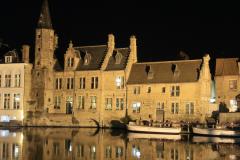Donating a classified property to offspring, how does the tax system work ?
As with inheritances, taxation for the donation of a historical monument or a classified property can be totally cancelled under certain conditions. Otherwise, taxes are calculated according to a pre-established rate.

The exoneration conditions pertaining to a historical monument
If you benefit from the donation of a building, classified or listed on the additional inventory of historical monuments, you must pay donation taxes unless you have signed a convention with the regional director of cultural affairs. The convention enables to define the extent of the exoneration. Only the buildings pertaining to the convention, as well as the furniture and fittings, art work and objects, books, etc., as well as outbuildings (gardens, parks …) figuring on the inventory annexed to the convention, are excluded from donation taxes. Following the study of your request, you will receive a notification by special postal delivery. If it is favorable, the exoneration of donation taxes will be applied as long as you respect your commitments.
Good to know
Careful, if you do not respect the established convention, the administration has the right to claim payment of the donation taxation in its entirety.
Non respect of the convention terms for a classified property
If the beneficiary does not respect his or her obligation to open their property to the general public, in keeping with their commitment, the administration has the right to claim payment of the donation taxes. In the case of life accidents, the administration will make exeptions to its rules. Thus, if the beneficiary looses his job, has a serious illness or a handicap, and if he can justify that these circumstances prevent him or her from opening the monument for visits, he can, during 3 years, be limited to just to hosting visitors by appointment during the months of July and August. However, the beneficiary must inform the Ministry of Culture and Communication, as well as the Ministry of Economy, Economy, Finances and Industry, of this decision. The latter have the possibility of refusing this request. Visiting hours are communicated from one year to the next by the DRAC (direction régionale des affaires culturelles), to the Departmental Direction of Fiscal Services and the Regional Tourism Delegation pertaining to the location of monuments. It is to be noted that this exception in case of a life accident is not applicable if there are several beneficiaries.
Legal reference
BOFIP-RFPI-SPEC-30-20-20





Pouvez-vous nous préciser pourquoi ? (facultatif)